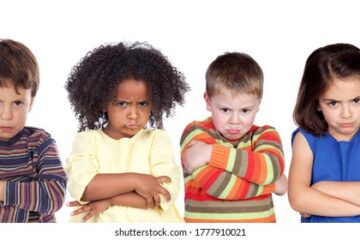Child development stages are a series of milestones that children go through from infancy to adolescence. Each stage of development is marked by physical, cognitive, and emotional changes that allow children to grow and mature into well-adjusted adults. Understanding these stages is essential for parents and caregivers to provide appropriate support and guidance for their children.
Stage 1: Infancy (0-2 years)
The infancy stage is a critical time in a child’s development, marked by rapid physical and cognitive changes. During this time, infants learn to explore and interact with their environment, develop basic motor skills, and form strong attachments with their caregivers. Key milestones during this stage include:
- Motor skills: Infants learn to grasp objects, roll over, sit up, crawl, and eventually walk.
- Language development: Infants begin to make cooing and babbling sounds, and eventually say their first words.
- Emotional development: Infants develop a sense of trust and security through their interactions with their caregivers. They also begin to recognize and respond to different emotions.
Stage 2: Toddlerhood (2-3 years)
The toddlerhood stage is a time when children become more independent and start to explore the world around them. They continue to develop their motor skills, language, and social skills and begin to form a stronger sense of self-identity. Key milestones during this stage include:
- Motor skills: Toddlers become more coordinated and confident in their movements, and can run, jump, and climb stairs.
- Language development: Toddlers begin to use simple sentences and communicate more effectively with others.
- Social development: Toddlers start to play with other children and develop friendships. They also begin to show a greater sense of empathy and understanding of others’ emotions.
Stage 3: Preschool (3-5 years)
Preschool is a time when children continue to develop their social and emotional skills and become more independent in their thinking and problem-solving. They also begin to learn basic academic skills, such as letters, numbers, and shapes. Key milestones during this stage include:
- Language development: Preschoolers develop more complex language skills and can have conversations with others.
- Cognitive development: Preschoolers start to understand cause and effect, and can solve simple problems independently.
- Social development: Preschoolers continue to develop their social skills and friendships, and learn how to share and take turns.
Stage 4: Middle Childhood (6-11 years)
Middle childhood is a time when children become more focused on their academic and social development. They continue to develop their cognitive and social skills and start to form a stronger sense of identity and self-esteem. Key milestones during this stage include:
- Cognitive development: Children in middle childhood develop more advanced problem-solving and critical thinking skills and begin to think more abstractly.
- Social development: Children develop more complex friendships and social relationships and begin to understand social norms and rules.
- Emotional development: Children become more aware of their own emotions and start to develop coping strategies for managing them.
Stage 5: Adolescence (12-18 years)
Adolescence is a time when children transition into young adults. They experience significant physical, cognitive, and emotional changes and begin to navigate more complex social relationships and expectations. Key milestones during this stage include:
- Physical development: Adolescents go through significant physical changes, including puberty and growth spurts.
- Cognitive development: Adolescents continue to develop their critical thinking and problem-solving skills and begin to think more abstractly and logically.
- Social development: Adolescents develop a more mature understanding of social norms and expectations, form deeper and more meaningful relationships with peers, and develop a sense of identity and purpose.
In conclusion, understanding the different stages of child development is crucial for parents, teachers and caregivers to provide the necessary support and guidance for their children.



0 Comments